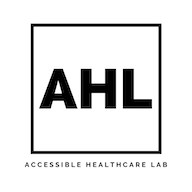







Improving health literacy is dependent upon satisfying the needs of persons with visual impairments. Generally, people with visual impairments access the web using screen reader software that processes web pages sequentially from top to bottom and reads the content out in computer-synthesized speech. This study aims to understand the health information seeking behavior of a visually impaired health consumer-learner in the context of the auditory screen reader interface. By utilizing a remote usability test, we will compare the health information seeking patterns between participants with visual impairments (n = 20) and sighted participants (n = 20). Each participant’s approach to search query formulation, search results exploration, search query reformulation, and search results storage will be observed and analyzed. The grand idea behind this research is to guide the development of accessible health information websites and health literacy interventions for people with visual impairments. Interested students can contact us to learn more about this research project.
Visuals can play a significant role in the acquisition of health information that is designed to guide individuals to determine medical treatments, symptom management, chronic care, or lifestyle options for health promotion over and above what would be gained from text. The variability in visual impairment severity and functional response makes health literacy a challenge for healthcare workers and health policy makers. Preferred adaptive strategies and devices vary depending on the severity of vision loss and the individual’s characteristics. At this juncture, we can ask the following question: “Can we accurately measure the health literacy of people with visual impairments by utilizing the current tools designed for typically sighted people?” To concisely assess and evaluate the health literacy of people with visual impairments, we should confirm whether current assessment tools include all the significant health literacy constructs and reflect the genuine needs of health literacy among people with visual impairments.
This study has been proposed to collect preliminary health data from totally blind people. Building on the scientific knowledge on circadian rhythms which highlighted the importance of maintaining consistent sleep/wake cycles, eating time intervals, and daytime physical activities, this research proposes investigating the patterns of circadian rhythms alongside self-reported measures of psychological status and fatigue among both totally blind and sighted people. By identifying the relationships of interest and examining the effects of total blindness with no light perception and sleep disturbances on health status, the proposed research aims to establish foundations for personalized biobehavioral health education leading to normalizing circadian rhythms and improve recognition of circadian rhythm disturbances and their impact on the quality of life of blind individuals.
Totally blind people often suffer from circadian rhythm disturbances. Although wearable devices and sleep-tracking mobile apps are widely adopted among sighted counterparts to remodel their sleep-wake cycles, its effectiveness and accessibility have not yet been fully examined with blind individuals. This study investigates the sleep patterns and fatigue levels of blind people, using a wrist actigraphy with mobile app, and assesses the demanding features of accessible sleep tracking mobile apps that can help blind people better manage their sleep habits. The findings contribute to addressing largely underexplored health disparities and nontrivial mobile health accessibility gaps between sighted and blind people.
2022 Soyoung Choi - All rights reserved